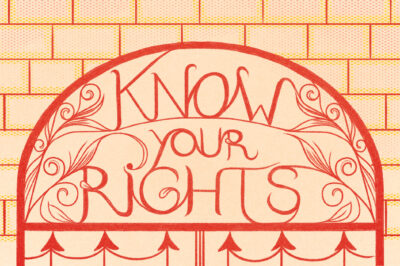ACLU of Virginia and College Newspapers Say Ad Restrictions Violate Free Speech Rights
FOR IMMEDIATE RELEASE
CONTACT: media@aclu.org
RICHMOND, VA - The American Civil Liberties Union of Virginia today appeared in federal court to challenge a state policy that violates the free speech rights of students by restricting alcohol advertisements in college newspapers.
At issue is a rule enacted by the Virginia Alcoholic Beverage Control Board that prohibits the advertisement of beer, wine and mixed drinks in college student publications.
“We’re not questioning the ABC board’s right to regulate alcohol, nor are we saying it shouldn’t be concerned about student drinking, but the state cannot suppress the free speech rights of college newspapers by subjecting them to arbitrary restrictions not imposed on other newspapers,” said ACLU of Virginia Executive Director Kent Willis.
The ACLU represents Collegiate Times and Cavalier Daily, the student newspapers at Virginia Tech and the University of Virginia, respectively. Both newspapers are supported almost entirely by advertising revenues. ACLU Legal Director Rebecca Glenberg argued in court today that the state ban is unconstitutional and unfairly denies student newspapers a source of income available to non-student newspapers.
According to Glenberg, there is no empirical research showing that the ban on advertising reduces student alcohol consumption, while there is ample evidence that other techniques do, particularly raising taxes on alcohol products and “counter advertising” in student papers.
“What is most puzzling about this case is that the ABC board now knows how to fix the constitutional problems with its regulations and how to start addressing the student drinking problem - yet they do neither,” Willis said.
The case, Educational Media Company at Virginia Tech v. Swecker, was argued before U.S. Magistrate Judge Hannah Lauck in Richmond. In addition to Glenberg, Frank M. Feibelman provided legal representation to the plaintiffs.
The ACLU’s challenge is similar to a case brought in 2004 by the University of Pittsburgh’s student paper, Pitt News. Pitt News prevailed when a federal appeals court held that a ban on alcohol advertising violated the freedom of the press because it unjustifiably imposed a burden on media associated with colleges, but not on other media. The opinion in that case was written by now Supreme Court Justice Samuel Alito.
Stay Informed
Sign up to be the first to hear about how to take action.



